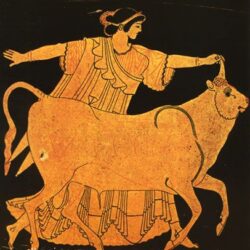While reading the article of The Return of No-Man’s Land I kept thinking about how those people felt during their time in No-Man’s Land. I cannot imagine having to live through this and experience this side of history. I was wondering if you all had any thoughts as to how this people must have felt so we can make a connection to this part of history? Personally, I would feel betrayed and isolated if I were in this situation.
My Father’s Guilt
While reading My Father’s Guilt, I noticed the author was very descriptive from the first page to the last. On pages 150 to 151 the author describes what their community looked like while Tito was in office, specifically the school classrooms.
I wanted to discuss the authors tone when describing Tito’s portrait versus when describing President Tudjman’s picture.
I also wanted to hear what you all think of the last line in this paragraph ending on page 151…
“… soon he will be swallowed up by oblivion, until the moment when he comes back to trouble us as a reckless ghost.”
Drakulic, 151
The Magic Lantern
While reading the first few pages of The Magic Lantern, a very broad question came to mind. How did these people continue to live through tragedy after tragedy without allowing it to overcome them? In the paragraph that starts with “Everyone, but everyone…” on page 63, it entails that once the wall was torn down people just went about their daily lives but with much more enthusiasm. Personally, I believe that these people were finally given a chance to just breathe and, in some ways, continue the lives they once lived. I think that they wanted their normal lives back so badly and that they would never take it for granted again.

Cruel Star
“I have often thought that many of our people turned to Communism not so much in revolt against the existing political system, but out of sheer despair over human nature which showed itself at its very worst after the war. Since it is impossible for men to give up on mankind, they blame the social order in which they live; they condemn the human condition.”
Kovaly, 53
I have selected this quote from one of the first pages of this assigned reading because I want to unpack it with the class. I am curious to hear everyone’s analysis of this selected text and I want to know if you personally agree with the last sentence.
The Cult of the Individual
“Stalin was a very distrustful man, sickly suspicious. He could look at a man and say: “Why are your eyes so shifty today?” or “Why are you turning so much today and avoiding to look me directly in the eyes?” The sickly suspicion created in him a general distrust. Everywhere and in everything he saw “enemies”, “two-facers” and “spies”.”
I was wondering what our class thinks about this specific quote. Do you think the events that were taking place during this time period forced Stalin to not trust anyone or anything? Or do you think that he naturally just thinks this way?
The Individual Against the State
While reading chapter six of the Dark Continent, a certain paragraph stood out to me. The beginning of this section talks about individual choice versus fate. I thought this specific quote would make for an interesting conversation:
“Yet others reached quite different conclusions: faced with the choice between collaboration and resistance, everything boiled down not to fate but to a stark individual decision.”
(Mazower, Chapter 6)
Does this theory make sense? Is your future solely based on decisions, or is it possible that your future based on both fate and individual decisions?
In my opinion, I think to say that what happened in Nazi Germany was solely based on decisions that had nothing to do with fate is a bit inconsiderate. How can you say that the humans targeted during the Nazi rein that were tortured and abused were there because of their own decisions?
Author’s Preface
While starting the reading for Thursday, there was one particular section of his very first page that I found to be very interesting:
“Many people – many nations – can find themselves holding, more or less wittingly, that ‘every stranger is an enemy’. For the most part this conviction lies deep down like some latent infection; it betrays itself only in random, disconnected acts, and does not lie at the base of a system of reason.”
(Levi, 9)
I wanted to ask the class if they themselves found this to be true or not, and if so why or why not?
Personally, I believe that Levi is correct. Many people feel threatened by others they do not know, while it seems leaders of countries are timid to make new relations with other countries and their leaders.
“You’re a good German.”
In Changes at School, Ellen Switzer recalls her encounters with her classmate, Ruth. She mentions that Ruth is a generous person and further describes her personality. Ruth passed out Nazi propaganda to those who would ask her for advice. Then, when confronted by her classmates, Ruth says that they are “good Germans”, but then later, she says:
“Ruth actually came around and apologized to those of us to whom she was no longer able to talk. ‘The whole thing may be a misunderstanding,’ she explained, “Maybe it will all be straightened out later. But meanwhile, Hitler must know what he is doing, and I’ll follow orders.”
Ellen Switzer
I thought it was interesting how quickly Ruth had switched her ideals because one person told her it was acceptable. It also disturbed me that she even turned against her own classmates.
